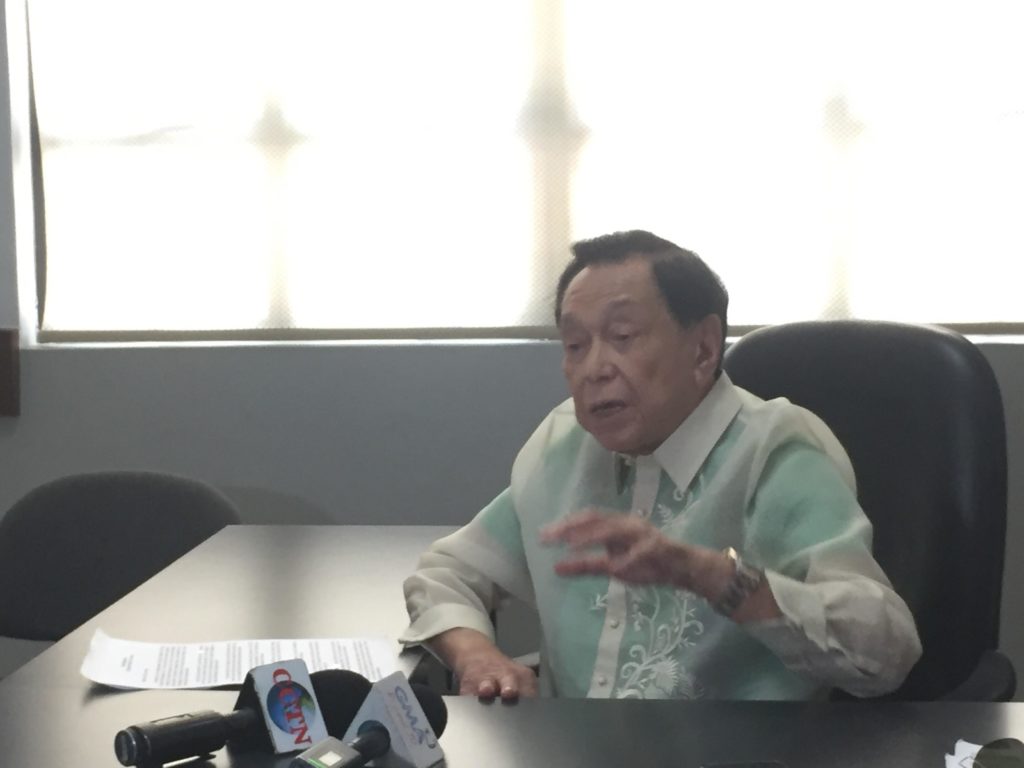Cuenco to police, PDEA: release inventory of drug hauls in past 5 years

Cebu City Councilor Antonio Cuenco urged the Police Regional Office in Central Visayas (PRO-7) to provide an inventory of all confiscated illegal drugs during operations in the span of the last five years. | Delta Letigio
CEBU CITY, Philippines — Cebu City Councilor Antonio Cuenco urged the police and the Philippine Drug Enforcement Agency in Central Visayas (PDEA-7) to furnish the city government a copy of the inventory of illegal drugs they have seized in the last five years amid allegations these were being recycled by scalawags in uniform infamously called “ninja cops.”
Cuenco, a multiple-term congressman before he won a seat in the Cebu City Council and who was one of the authors of Republic Act (RA) 9165 or the Comprehensive Dangerous Drugs Act of 2002, said he was disappointed by the recent pronouncements of PDEA that there are at least 53 active “ninja cops” in the country.
These “ninja cops” are scalawags in uniform involved in recycling seized drug.
With this admission coming from PDEA itself, Cuenco said the Police Regional Office in Central Visayas (PRO-7) and PDEA-7 must be transparent to the public about the amount of illegal drugs they have confiscated for the past five years, most of which are in the custody of PDEA-7 or the PRO-7 crime laboratory.
Read more: PDEA chief tags 53 active ‘ninja cops’
Cuenco said that RA 9165 specifically states that illegal drugs obtained in operations must be recorded, analyzed, inspected by the prosecutor and the court judge, then disposed within 72 hours of confiscation. The mode of disposal must be through incineration.
All confiscated drugs by the police and other law enforcement agencies should be turned over to PDEA, if the drugs came from Metro Cebu, or to the PRO-7 crime laboratory if the drugs came from outside Metro Cebu.
The destruction of illegal drugs must at all times done be in the presence of PDEA.
The councilor said that since the war on drugs begun in 2016, he has not heard reports of destruction of illegal drugs confiscated by the police or PDEA, which he said should be witnessed by local authorities, legislators, the public and the media.
Cuenco said this raises more suspicion on how and where the drugs are being stored, and the possibility of “ninja cops” gaining access to these drugs and reselling them to consumers or to plant evidence on arrested drug suspects.
Read more: Sinas: Presence of ninja cops is not rampant in PRO-7
“Give us an inventory of the last five year. Pila ang kantidad? Unsa ang gidaghanon? Ug kon naa man gani moy gisunog, unsa inyong pruweba? (Provide us the quantity of the drugs and their value. If you destroyed some of them, what is your proof?),” he said in a press conference on Friday morning, September 27, 2019.
After delivering his privilege speech over the issue on Tuesday, September 24, Cuenco succeeded to make the City Council request the Regional Trial Courts in Cebu City to hasten the issuance of order to destroy illegal drugs presented as evidence to the court.
In this way, the illegal drugs stored in PDEA-7 and the police crime laboratory will not find their way back to the streets through the so-called ninja cops.
The City Council also ordered the inventory of the drug haul of PDEA-7 and PRO-7 in the last five years.
Furthermore, Cuenco said the police cannot simply wait for a court order to destroy the illegal drugs. They have to file a motion to destroy the substances.
Lawyer Clarence Paul Oaminal, the former undersecretary of the Dangerous Drug Board, said the police do not necessarily have to finish destroying all of the confiscated substances within the given 72 hours because the drugs would sometimes come in bulk.
He said that once the court judge has conducted an ocular inspection on the drug evidence, the court must order the destruction of these illegal drugs within 24 hours after the inspection.
In case the judge has not ordered the drugs’ destruction within 24 hours, the police must file a motion to destroy the substances in order to hasten the destruction.
“Dili na sila kailangan maghuwat kay kung maghuwat sila nga mahuman ang kaso, pila pa na katuig bag-o madestroy. (The police should not wait for the court to finish hearing the case because if they did, it will take years before the substances will be destroyed),” said Oaminal.
Meanwhile, Cuenco is also calling for an executive session representatives from the police, PDEA, and the courts in the city to discuss how to speed up the process of destroying seized illegal drugs.
He said the City Council and the public must know the situation in the courts and the constraints faced by law enforcers in the destruction of illegal drugs./elb
Disclaimer: The comments uploaded on this site do not necessarily represent or reflect the views of management and owner of Cebudailynews. We reserve the right to exclude comments that we deem to be inconsistent with our editorial standards.
